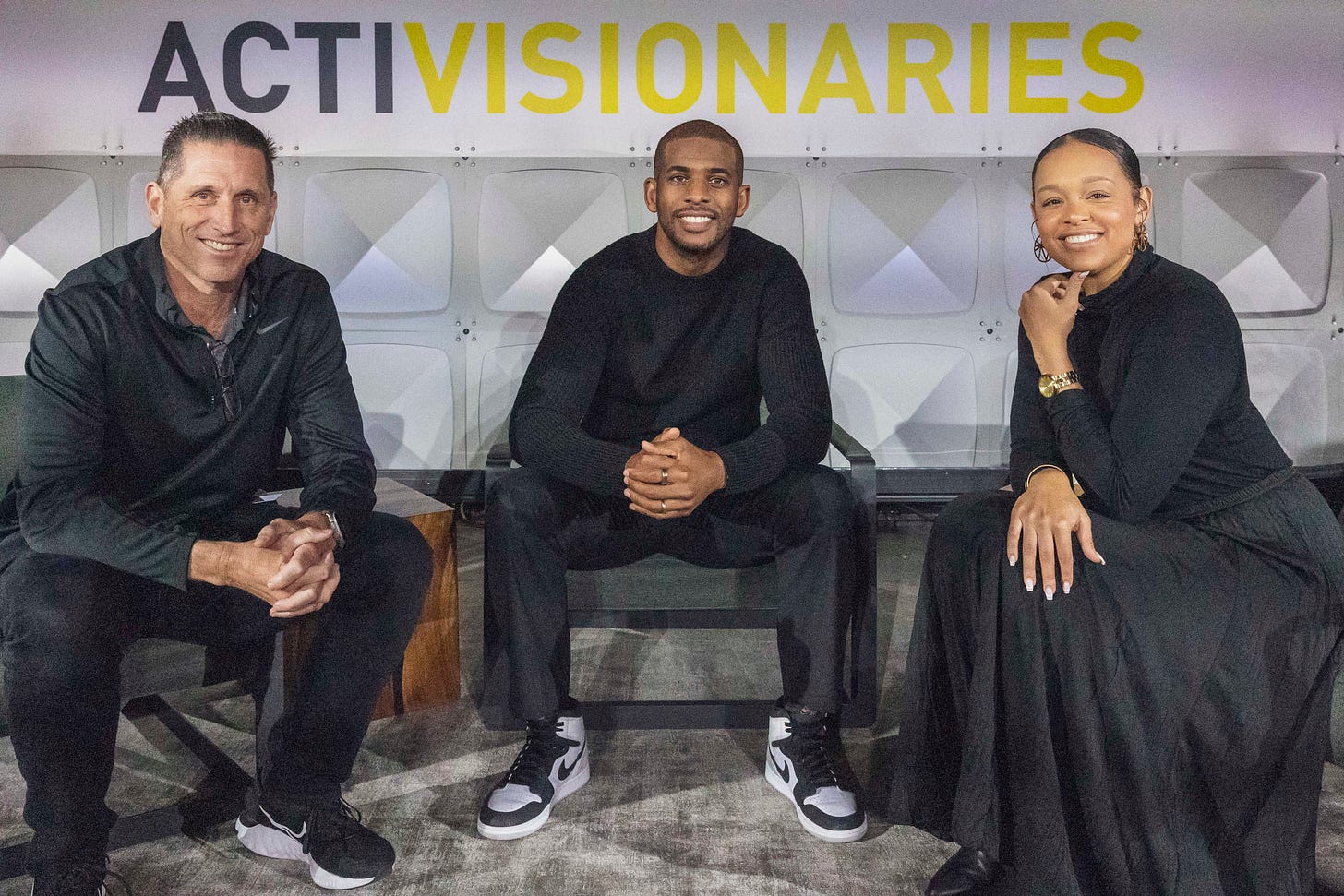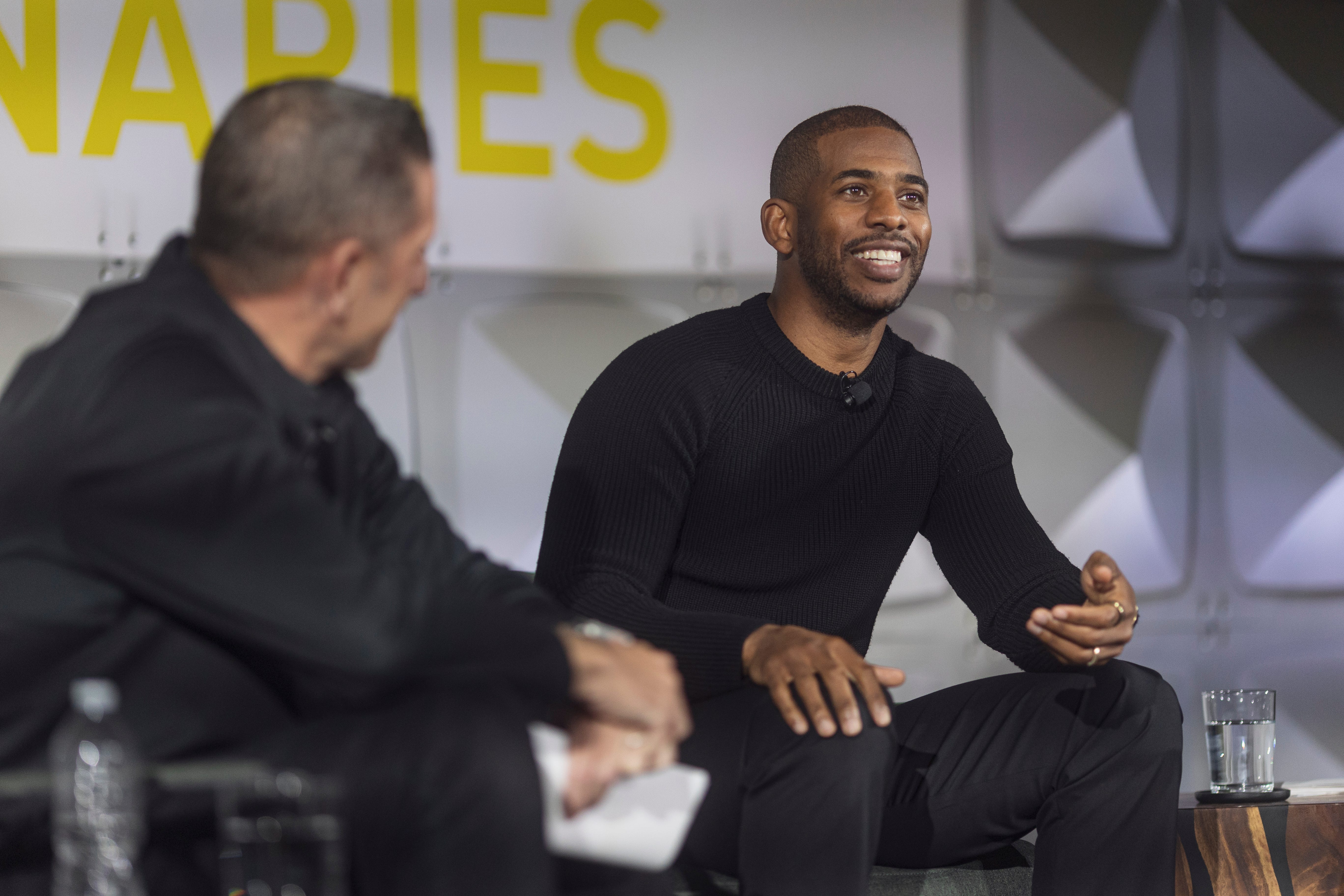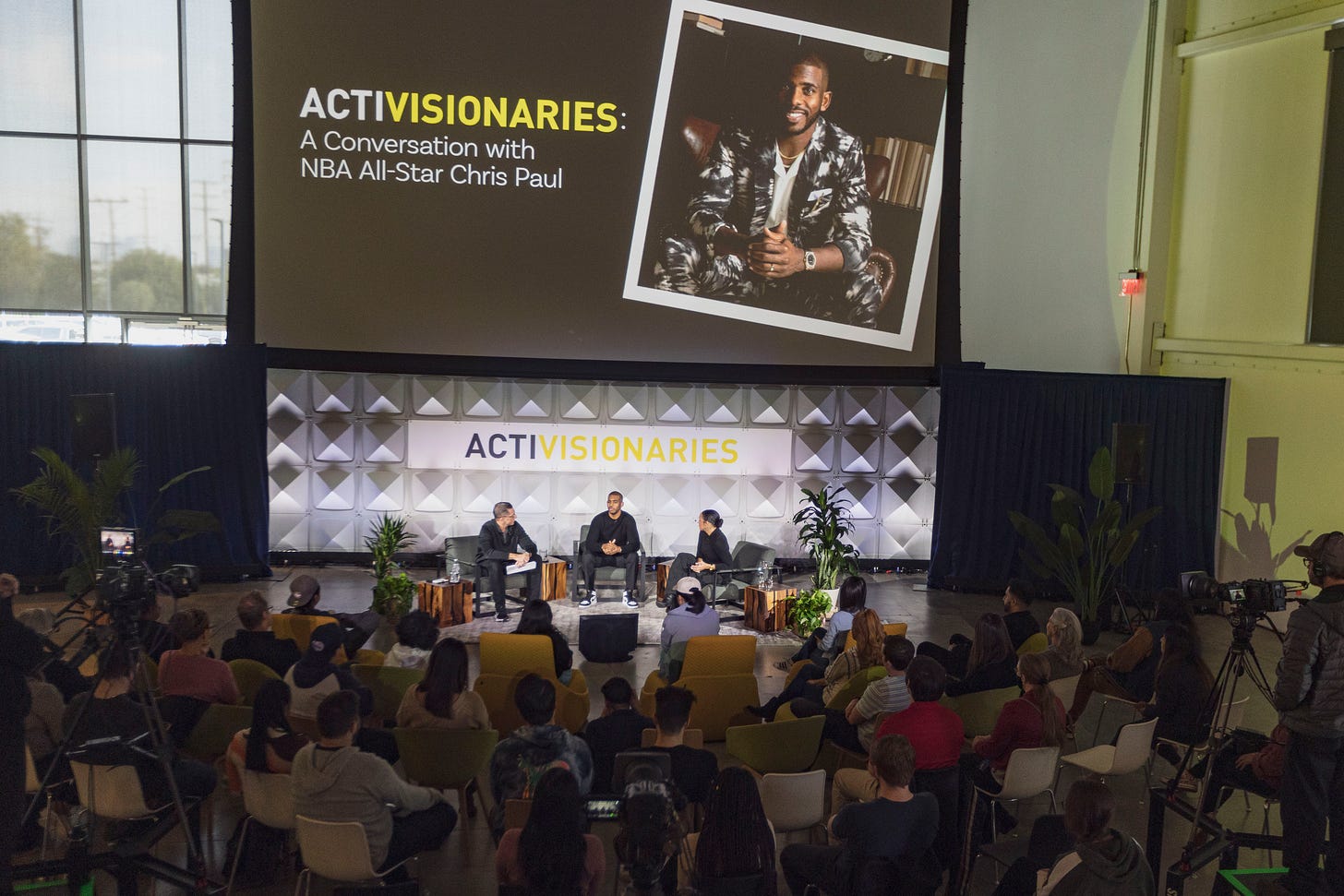Leadership Advice From NBA All-Star Chris Paul
Phoenix Suns point guard and Olympic gold medalist “CP3” on the lessons he's learned from his 18-year NBA career, and what true leadership looks like on and off the court
On the court, there is no question that the Phoenix Suns’ Chris Paul is in his leadership element. The veteran point guard sees the big picture, knows how best to utilize his teammates’ strengths, and sets the pace right from the opening tip. Off the court, however, Paul wasn’t always so confident about his own voice in the room. Like a lot of people, the challenges of speaking up, setting the tone, and leading by example seemed daunting.
In the end, however, Paul did what he has done his whole career – he accepted the challenge and rose to the occasion. “You know, when I think of being a leader, it’s funny - I've always been a point guard when I played sports. When I played football, I was a quarterback. Then when I think back to school, I was also class president sophomore, junior and senior years,” says Paul. “I think my grandfather and my parents just always instilled that into me, but I kinda felt like I was thrust into it. But when you do it more and more, you just get comfortable with it.”
Being named president of the NBA Players Association in 2013 helped Paul further evolve into someone who saw the big picture off the court and allowed him to draw on the lessons he’s learned from leaders in his own life. He recently visited Activision Blizzard to talk about what leadership means to him now, how the influences of friends, family, and coaches have shaped his life and career, and how being a role model, nine-time NBA All-Star, and Olympic gold medal winner is just the beginning of his big picture plans.
Here are five leadership lessons that have guided Chris Paul…
Learn Everything About Your Business
“I actually got on the executive committee my third year in the NBA. I tell you, when you’re a kid growing up playing basketball, you just hoop. You never in the backyard like, ‘Ooh, I need to learn about 401k’ or ‘Man, I want to make it to the NBA so I can learn about finance.’ But when you are a 19-year-old kid, like I was when I got into the NBA, you start to understand that it's a business. So in my third year I joined the executive committee and then I went through my first labor negotiation. I went to this table and I'm sitting there hearing all this stuff about business and I'm intimidated. But I started getting more and more curious. Then we were in Vegas for our annual meeting, and one of the guys said, "Yo, Chris, we need you to be the president [of the Players Association].’
The first thing I did - anybody who’s married - I went and asked my wife. I was like, "Look, they’re talking about me being the president. I don't think I got time." But my wife - I'll never forget this - she said to me, "If they're asking you to do it, then they must really need you to do it." I'm so grateful for those eight years, because I learned so much. It was a business class on steroids. I say I was thrust into it, but I am so grateful that I got the opportunity.”

Communication is Everything
“One of the biggest things I learned as president of the union is how much you need to delegate. And communication is everything. Anytime that there's a big decision made in the league, we always take it to the full body of players. Every team has a team representative, so there's 30 players on our board. So as many calls and meetings as we have with our executive committee, no matter what, if there's a big decision, we take it to all the team reps, because now the team reps are responsible for their respective teams. I think that helped everything. We don't always agree, but there's a team rep and there are always conversations about the decisions. And it's OK to disagree. It's OK to not be on the same page, as long as you communicate about it.”
Take a Stand For Your Team’s Mental Health
“The George Floyd situation happened before we went to the bubble [during the 2020 pandemic], and then the situation happened with Jacob Blake while we were there. I was on the bus headed to game to play against the Rockets when I saw that the Bucks weren't playing. So I got off the bus. Dame [Damian Lillard] called me, Bron [LeBron James] called me, [NBA Commissioner] Adam Silver called me. Here we were in a situation where we actually have to deal with the stuff in real time. The first thing we did was we called a big meeting of all the players. We called a pause and said, ‘Let's bring ourselves together in a room and let's really talk about it.’
I'll tell you this, in my entire 18-year NBA career, that's probably one of the most meaningful things that has ever happened. Typically, after a game, you see everybody dap up and be like, ‘You good? You good?’ And everybody always says, ‘Yeah, I'm good’ - and even if they might not be, that's the only interaction we get, because we go to the locker room, get on the plane, and get to the next city. But this moment, in the bubble, in that room, we actually got a chance to be humans and figure out how everybody was really doing mentally.”
You Can’t Fake Authenticity
“I'm a firm believer in that people can really feel your energy, and so if you are famous and you feel like you're forced to go do these things in the community, people can feel that. I think for me, being a parent also, if you don't stand for something, you'll fall for anything. So when Bron, Melo (Carmelo Anthony), D Wade (Dwayne Wade) and I spoke at the ESPYs, we took it seriously. We talked about it a lot beforehand, what we wanted to say in that moment.
I'll never forget one of the coolest pictures I have is of my son watching that Espy speech on TV. I didn't think my son was going to be watching, but that picture is something that I'll never forget, because it gets you to realize that the things that you do now impact your kids.”
Well Done is Better Than Well Said
“I'd say my work ethic comes from my grandfather. He had the first black-owned service station in North Carolina, and he worked every day. I think watching him is why I’m wired that way. He always used to say ‘I can’t have somebody telling me what to do.’ My granddad didn't take vacations. My grandmother died when I was eight years old from lung cancer, and my grandfather was so instrumental in our family. I saw the way that he just took care of us. If me and my brother wanted some Jordans, even though he had money, he wouldn't give it to us. He made us work. He would make us come to the service station, work on weekends. I just seen the way that my grandfather took care of our family spiritually, financially, and emotionally. He was murdered when I was 17, I was like, ‘OK I'm going to be for my family what my grandfather always meant.’
I also think about my college coach Skip Prosser a lot. He passed away my second year in the NBA, but I still use a lot of the saying he used to use all the time. Like, ‘If you can't be on time, be early’ and ‘Well done is better than well said’ or ‘Everything that you want is on the other side of hard.’ And I’m still using them! You just see how important it is to be around guys that are minded like that.”
TAKE ACTION:
🎮 Interested in a career at Activision Blizzard? Get started right here.
🏀 Gaming and basketball go hand-in-hand - find out who’s getting pumped up online before they go off on the court




